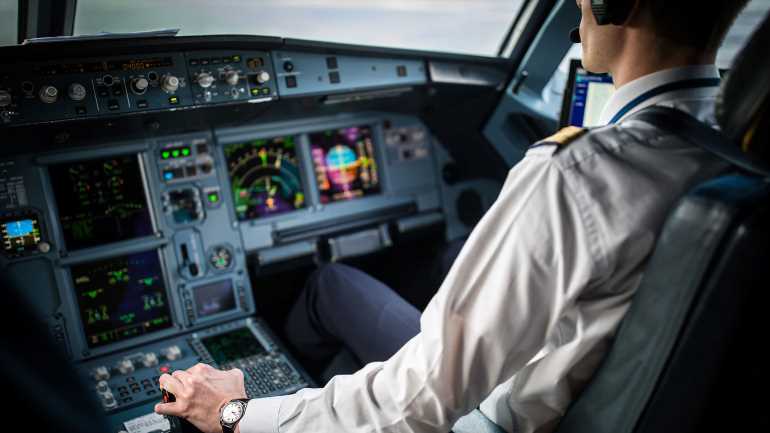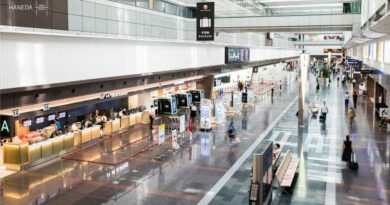Unions oppose proposal to raise pilot retirement age: Travel Weekly
The two primary pilot unions in the U.S. have come out strongly against a reported plan by Sen. Lindsey Graham (R-S.C.) to introduce a bill that would raise the mandatory retirement age for pilots.
Both unions have also called on the FAA to reject a Republic Airways petition that would allow graduates of its Lift Academy flight-training school to co-pilot commercial airlines flights with 750 cockpit hours, half of the 1,500 hours that are currently required of graduates of all non-academic or non-military flight training programs.
Graham told Bloomberg on Wednesday that his bill would extend the mandatory pilot retirement age of 65 by a couple of years.
“We are working on it now,” he told Bloomberg. “You’ve obviously got to pass a physical, so you’ve got to be physically fit, but there is no reason not to extend it a couple years.”
Graham’s office did not immediately respond to a Travel Weekly request for comment Thursday.
Pilot unions: No reason to change retirement age
The Air Line Pilots Association (ALPA) and the Allied Pilots Association (APA) issued statements Thursday opposing a change to the mandatory retirement age. ALPA is the largest U.S pilots union and counts United among its pilot groups. The APA represents American Airlines pilots.
“This discussion is yet another attempt to distract the conversation from the real issue, which is the failure of airlines to deliver on a key goal of the multibillion-dollar relief plan Congress provided them during the pandemic, which was to effectively manage air-service operations as travel resumes,” ALPA president Joe DePete said. “ALPA strongly opposes this proposed legislation as there is no reason to change the retirement age today, and doing so would only increase costs for airlines as well as introduce unnecessary risks to passengers and crew alike.”
Graham’s effort comes as airlines are suspending routes, cutting capacity and pulling out of some small markets entirely due to an industrywide pilot shortage that has been intensified by the approximately 6,000 early retirement packages that mainline pilots took in 2020.
Is there a pilot shortage or not?
Last month, United CEO Scott Kirby estimated that the FAA will certify approximately 7,000 fewer pilots this year than airlines intend to hire. The APA, however, disputes that there is a shortage.
“FAA records indicate that nearly 16,000 new airline transport pilot licenses were issued between 2019 and 2021. During that same time, approximately 9,600 pilots retired, leaving a surplus of several thousand pilots,” APA president Eric Ferguson said in a prepared remark.
- Related: United CEO confident that pilot shortage won’t affect the airline
Both unions argued that raising the mandatory retirement age would have unintended consequences due to international regulations that would force pilots older than 65 to fly only domestically. As a result, the labor groups argued, some widebody pilots would have to be placed back on domestic routes, where they would displace younger pilots.
In the meantime, a Republic Airways executive said Thursday that Republic is eager to engage with the FAA on its application for an exemption to the 1,500-hour training requirement. Republic flies regional routes for the American Eagle, United Express and Delta Connection brands.
“We’re asking the FAA to look and evaluate the program on its merits,” said the executive, who addressed the media Thursday under the condition that his name not be used.
Unions support 1,500-hour rule
The FAA has thus far cast doubt on the proposal’s chance for success, however, saying in a public statement that the agency “fully understands the intent of Congress when it established the 1,500-hour requirement and supports the safety goal it set out to achieve.”
Prior to the 1,500-hour rule taking effect in 2013, individuals could co-pilot for a regional airline with as few 250 logged flight hours. Congress passed the rule after the crash of Colgan Air flight 3407 near Buffalo, N.Y., in 2009. The crash killed all 49 passengers and crew as well as one person on the ground.
In its April regulatory application, Republic argued that the rigorous curriculum and structure of its proposed training program would exceed the safety standards of military training. Under existing regulations, military trained pilots are granted an exception to the 1,500-hour rule and can fly for a commercial carrier after logging 750 flight hours.
The Republic executive said that the carrier has compiled five years of data from its Lift Academy training program that show the program works even better than military flight-training pathways.
“We would never propose anything that doesn’t advance safety,” he said. “Safety is our brand. Safety is our business.”
Both ALPA and the APA, however, oppose new exemptions to the 1,500-hour rule.
“Proponents of relaxing the rule characterize it as a way to increase the supply of available pilots,” Ferguson said. “Just as it would be a bad idea to dilute doctors’ qualification requirements in an effort to increase the supply of practicing physicians, it’s equally ill-advised in a safety-sensitive occupation like our own.”
Source: Read Full Article



